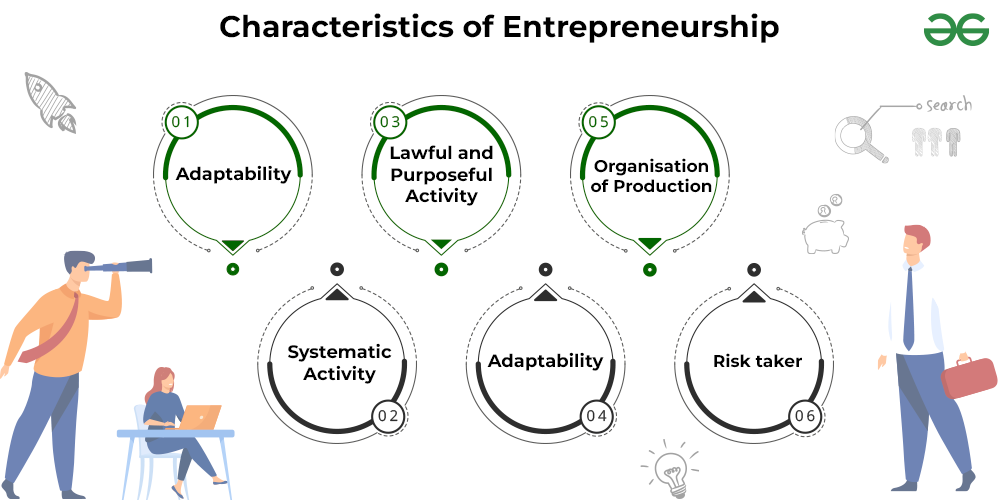The impact of research funding is profoundly felt across various sectors, particularly within the realms of entrepreneurship and the broader startup ecosystem. As federal funding for scientific research faces scrutiny, the consequences reverberate through innovative endeavors crucial to U.S. economic growth. Studies indicate that for every dollar invested in federal biomedical research, an impressive $2.56 returns to the U.S. economy, underscoring its pivotal role in fostering scientific innovation. Without sufficient resources, research universities—which serve as breeding grounds for startups—struggle to maintain their momentum, ultimately hindering the incubation of new ventures. This landscape begs the question: how will cuts to research funding shape future innovations and the vibrant entrepreneurial spirit?
Examining the ramifications of financial support for investigations can unveil its critical role in nurturing innovation and shaping new enterprises. The cessation or reduction of funding streams, particularly from governmental sources, poses a significant risk to the dynamic ecosystem where new companies flourish. As academic institutions often function as launching pads for technological breakthroughs, funding freezes could stifle the creative processes that lead to groundbreaking advancements. This situation raises concerns not just for individual startups, but for the overall health of the economy as these institutions are integral to encouraging the next generation of scientific innovation. Thus, the continuity of investment in research initiatives is paramount for sustaining a robust entrepreneurial environment.
The Significance of Research Funding in Driving Innovation
Research funding serves as the lifeblood for scientific innovation and entrepreneurship, directly influencing the development of new technologies and solutions. In the biomedical field, federal funding has been shown to propel research that leads to groundbreaking therapies and advancements in healthcare. For every dollar invested in biomedical research, evidence suggests a staggering return of $2.56 in economic activity, highlighting not just the immediate benefits to science but also the broader economic ripple effects that extend throughout the startup ecosystem.
Cutting research funding jeopardizes not just current innovation but the future entrepreneurial landscape of the United States. Startups reliant on cutting-edge research for their foundations might struggle to find the ideas, funding, and resources they need to thrive. This underscores the interconnectedness of research institutions and the entrepreneurial community—who rely on these innovations to launch new ventures and maintain a robust economy.
Understanding the Startup Ecosystem: The Role of Research Institutions
Research universities are crucial components of the startup ecosystem, acting as incubators for new ventures. They provide essential resources such as labs, mentorship, and technology transfer offices that facilitate the transition from research to commercialization. Faculty and students at these institutions are often at the forefront of developing technologies that become the basis for many startups, particularly in fields like computer science and biomedical engineering.
The collaboration between research universities and the venture capital community is vital for nurturing innovative ideas into successful businesses. The expertise found in research labs, combined with an intentional approach to entrepreneurship education, primes students and faculty alike to launch successful ventures. These dynamics create a vibrant startup ecosystem that not only supports economic development but also drives technological advancement.
The Effects of Federal Funding Cuts on Innovation
Recent cuts to federal funding for research have created a significant disruption in the innovation pipeline. As academic institutions like Harvard face potential losses in grant money, the immediate consequences are evident in hiring freezes and canceled projects. This stifles the creativity and motivation of researchers at a time when their work could lead to breakthroughs in technology and medicine.
In the medium to long term, such funding cuts could result in a notable decline in the number of promising startups emerging from well-resourced labs. With diminished resources, the ability to incubate new ideas falters, threatening the overall growth of the entrepreneurial landscape. This grim outlook reflects the importance of stable funding sources in sustaining both research momentum and entrepreneurial success.
The Federal Funding Freeze: Implications for Economic Growth
The recent federal funding freeze has raised alarms about its long-term implications for U.S. economic growth. As researchers face constraints in resources, the capacity for innovation shrinks, leading to fewer breakthroughs that often translate into successful startups. Economic analyses suggest that even a minor reduction in research funding could result in a sizable contraction of the GDP, magnifying the necessity for reliable funding mechanisms to drive growth in the entrepreneurial sector.
Furthermore, consistent federal investment in research development fosters a vibrant environment where startups can flourish. Without such support, the startup ecosystem faces threats that could stymie the creation of new jobs and technological advancements, ultimately impacting the nation’s competitive edge globally. It is therefore crucial to advocate for sustained federal funding in scientific research to ensure continued economic vitality.
How Research Institutions Foster Entrepreneurship
Research institutions create a nurturing environment for entrepreneurship through intentional program development and support structures. Harvard Business School’s commitment to fostering a rich entrepreneurship curriculum exemplifies how academic institutions can position themselves as launchpads for budding entrepreneurs. By equipping students with the necessary skills and knowledge, these institutions play a critical role in bridging the gap between research and marketable innovation.
Moreover, partnerships with venture capitalists and industry experts provide essential guidance to students and faculty looking to commercialize their research. This collaborative environment fosters a culture of innovation where ideas can evolve into viable businesses. As such, the role of research institutions goes beyond mere knowledge creation—they are inseparable from the dynamics of the startup ecosystem.
The Long-term Effects of Disruption in Research Funding
The repercussions of disruptions in research funding extend beyond immediate financial implications. Startups incubated in this environment will likely feel the impact in the years to come, as the pipeline of innovative ideas diminishes. Researchers and entrepreneurs may face slower development timelines, resulting in fewer successful company launches. This could lead to a generation of innovators missing out on critical opportunities to commercialize their work.
In addition, the psychological effect on researchers and students cannot be underestimated. Cuts to funding may discourage ambition and the willingness to tackle challenging problems, leading to a less dynamic and innovative environment. The academic world thrives on excitement and potential, and disruptions to essential funding streams can derail that momentum, thus affecting the overall vibrancy of the U.S. entrepreneurial landscape.
Navigating the Future: Can the Damage Be Reversed?
Looking toward the future, a critical question arises: Can the damaging effects of federal funding freezes be reversed? The consensus among experts is that while it is feasible, it will require a concerted effort from both academic institutions and policymakers to reinstate and potentially increase funding levels. If proactive measures are taken to restore the funding pipeline, subsequent generations of researchers and entrepreneurs could still shape a thriving economy.
However, achieving this reversal will not be instantaneous. Given the lengthy nature of moving from research to commercialization, a significant gap may still exist before the ecosystem can fully stabilize. Fostering collaborations and advocacy to ensure future funding continuity is essential for the long-term health of the entrepreneurial ecosystem in the United States.
The Interplay of Innovation and Economic Policy
The relationship between innovation and economic policy is vital in shaping the future landscape of entrepreneurship in the U.S. The policies that dictate funding allocations for research directly affect the overall capacity for scientific advancement. Innovative policies that prioritize federal funding for crucial research sectors can stimulate economic growth by creating a robust environment for startups.
In contrast, restrictive or cutting policies could stifle progress and diminish the potential of home-grown entrepreneurship. Therefore, it becomes imperative for policymakers to recognize the intrinsic value of research funding not only as a budgetary item but as a fundamental component in sustaining the U.S. economy’s competitive edge on a global scale. Collaboration between government, research institutions, and the startup community remains essential to promote policies that foster innovation.
Fostering a Culture of Innovation Through Education
The role of education in fostering a culture of innovation cannot be overstated. Educational institutions not only provide knowledge but also inspire creativity and risk-taking among students. By embedding entrepreneurial thinking into various disciplines, universities can prepare a new generation of innovators ready to tackle modern challenges and launch successful startups.
Moreover, a culture of innovation encourages collaboration between disciplines, empowering students to leverage diverse perspectives in problem-solving. Research institutions must continue to prioritize entrepreneurship as a key area of focus in their curricula to ensure that future entrepreneurs can effectively translate academic knowledge into market-ready innovations.
Frequently Asked Questions
What is the impact of research funding on the startup ecosystem in the U.S.?
Research funding plays a crucial role in fostering the U.S. startup ecosystem by providing resources and support for innovative projects. Federal funding, particularly for biomedical research, has been shown to generate substantial economic activity, with every dollar spent yielding $2.56 in return. This influx of funding enables research universities to develop new technologies and ideas, which can lead to the creation of startups and advancements in the marketplace.
How does federal funding influence scientific innovation in entrepreneurship?
Federal funding is vital for scientific innovation as it ensures that research labs have the resources to pursue groundbreaking work. This funding allows researchers and entrepreneurs to explore novel ideas that can transform into successful business ventures. The sustained investment in science and technology nurtures an environment where entrepreneurs can thrive, ultimately driving economic growth and technological progress.
What are the long-term effects of halted federal funding on biomedical research and startups?
The long-term effects of halted federal funding on biomedical research can be detrimental to startups. When research funding is frozen, it can lead to canceled initiatives and hiring freezes, reducing the pipeline of new innovations. As a result, fewer startups may emerge in the following years, stunting growth in the biotechnology sector and delaying advancements that could have a significant impact on health and economy.
How can the loss of research funding impact U.S. economic growth?
The loss of research funding can have a significant impact on U.S. economic growth by curtailing innovation and reducing the competitive edge of the nation in technology and research fields. A study indicated that even a modest reduction in funding could shrink gross domestic product by 3.8%, mirroring the economic downturn experienced during the Great Recession. Such cuts undermine the potential for new business development and job creation in the startup ecosystem.
Why is federal funding critical for entrepreneurship in the science and technology sectors?
Federal funding is critical for entrepreneurship in science and technology as it provides the necessary financial resources to conduct research and develop new technologies. This support not only equips scientists with essential tools but also attracts talent and investment, thereby creating a vibrant entrepreneurial landscape. A robust funding environment enhances the prospects for startups, as it paves the way for groundbreaking discoveries that can lead to commercial success.
What measures can be taken to mitigate the impact of research funding cuts on startups?
To mitigate the impact of research funding cuts on startups, universities and policymakers can collaborate to establish alternative funding sources, such as private partnerships and philanthropic contributions. Additionally, creating incubator programs and fostering stronger connections between academia and industry can enhance support for entrepreneurs, ensuring that innovative ideas continue to move from the lab to the marketplace despite funding challenges.
How does research funding affect the commercialization of scientific discoveries?
Research funding significantly affects the commercialization of scientific discoveries by providing the necessary resources to turn theoretical research into viable products and technologies. With adequate funding, researchers can pursue patenting, develop prototypes, and conduct market analysis, all of which are critical steps in the commercialization process. The availability of funding encourages innovators to translate their discoveries into successful startups, generating economic value and societal benefits.
| Key Point | Details |
|---|---|
| Funding Cuts at Harvard | Over $2 billion in research funding frozen by the U.S. government, affecting science, medicine, and technology at Harvard. |
| Economic Impact | Projected GDP shrinkage of 3.8% due to funding cuts, comparable to the Great Recession. |
| Role of Research Universities | Research universities serve as incubators for startups, facilitating innovation through labs and rich entrepreneurial curricula. |
| Federal Funding Importance | Critical for developing commercial ideas from heavily resourced labs that attract talented entrepreneurs. |
| Long-Term Effects of Funding Freeze | Startup creation and innovation will see a ripple effect of 1-3 years as research projects stall due to funding cuts. |
Summary
The impact of research funding is crucial for fostering innovation and economic growth in the United States. With the recent funding freeze affecting universities like Harvard, the negative ramifications on startups and the broader economy are starting to materialize. The future of entrepreneurship relies heavily on the continuity of funding for scientific research, making it essential for policymakers to recognize the long-term benefits of supporting research initiatives.










Leave a Reply